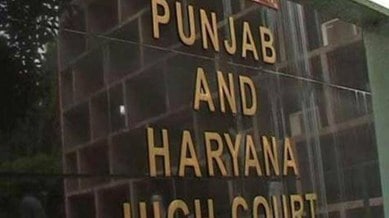Stay updated with the latest - Click here to follow us on Instagram
People caught with small amount of drugs must be granted bail, Punjab and Haryana High Court rules
Landmark ruling clarifies that strict NDPS bail restrictions apply only to commercial quantities, not minor drug cases. The case involved a Punjab resident who was denied bail based solely on a co-accused’s statement, even though no drugs were recovered from him—an evidentiary gap the court deemed unacceptable.

A landmark ruling, the Punjab and Haryana High Court has held that individuals caught with small quantities of drugs must be granted bail, a decision that could reshape how law enforcement handles minor drug cases under the Narcotic Drugs and Psychotropic Substances (NDPS) Act.
Justice Anoop Chitkara, while granting anticipatory bail to Kuldeep Singh alias Keepa, held that offences involving small quantities of drugs are bailable and do not fall under the stringent bail provisions of Section 37 of the NDPS Act. The court ruled that keeping first-time offenders behind bars for small recoveries would defeat the purpose of judicial discretion in bail matters.
Case details
The trial court denied anticipatory bail, prompting Kuldeep to move the high court. His counsel argued that the confession was made to a police officer and was inadmissible as evidence. Moreover, since the quantity recovered was classified as “small” under the NDPS Act, the offence should be treated as bailable.
Court’s observations
Justice Chitkara ruled that the law does not mandate treating all NDPS offences as non-bailable. “If an accused does not get anticipatory bail even in such a case, then the enactment of Section 482 BNSS, 2023 (analogous to Section 438 CrPC) itself shall become redundant, which cannot be the legislative intention,” he stated.
Referring to Section 37 of the NDPS Act, the court pointed out that while the provision categorically declares offences involving “commercial quantities” as non-bailable, it does not extend the same restriction to cases involving small quantities. “Had the legislature intended to render all offences under the NDPS Act non-bailable, it would have expressly provided so,” the ruling noted.
The judge further cited the Supreme Court’s rulings in Tofan Singh v. State of Tamil Nadu and State of Haryana v. Samarth Kumar, which held that confessional statements made to police officers under the NDPS Act are inadmissible in trial. “The contraband was recovered not from the petitioner but from the primary accused, who, while in police custody, implicated the petitioner in a statement that would be legally inadmissible as evidence,” the court said.
Bailable nature of small quantity offences
The ruling clarified that, as per the First Schedule of the Bharatiya Nagarik Suraksha Sanhita (BNSS), 2023 (formerly CrPC), offences punishable with imprisonment of less than three years are classified as bailable. Since the punishment for possessing a small quantity of heroin under the NDPS Act is up to one year, the offence falls under the bailable category.
Justice Chitkara remarked, “A significant issue warranting consideration by this Court is whether such offences are inherently bailable by operation of the NDPS Act itself. If they are not, it would create an absurd situation where minor infractions are treated as harshly as serious drug trafficking offences.” He added, “If the legislature had intended to classify all offences under the NDPS Act as non-bailable, it would have explicitly done so by employing a simple ‘all’-encompassing prefix.”
He also noted that “the very purpose of classifying drug quantities into small, intermediate, and commercial is to ensure proportionality in sentencing and bail conditions. Ignoring this classification would be contrary to legislative intent.”
The judge referenced multiple high court rulings from Allahabad, Kerala, and Bombay that have held small quantity offences under the NDPS Act to be bailable. “The heading of Section 37, which states ‘Offences to be Cognizable and Non-Bailable,’ lacks comprehensive applicability, as the non-bailable nature of all offences under the Act is not explicitly affirmed across all clauses of the section,” he observed.
The court further held that “the title or heading of a section illustrates its contents but should be read with the body, especially if the language of the body is clear. The words of the enactment must take precedence over its title.”
Implications of the ruling
The decision is expected to have a significant impact on policing practices in Punjab and Haryana, where drug-related offences are prevalent.
Justice Chitkara cautioned against arbitrary detentions under the NDPS Act, stating, “When an individual is caught with a small quantity of drugs, the law does not demand that he be treated the same as a drug trafficker. The principle of fairness must prevail.”
He also directed that police officials must strictly adhere to the legal framework regarding bail. “A suspect or accused is entitled to bail for small quantity offences under Section 436 of the Criminal Procedure Code, without the necessity of seeking it in court. The police must ensure that suspects are released on bail if they offer it in accordance with the law,” he said.